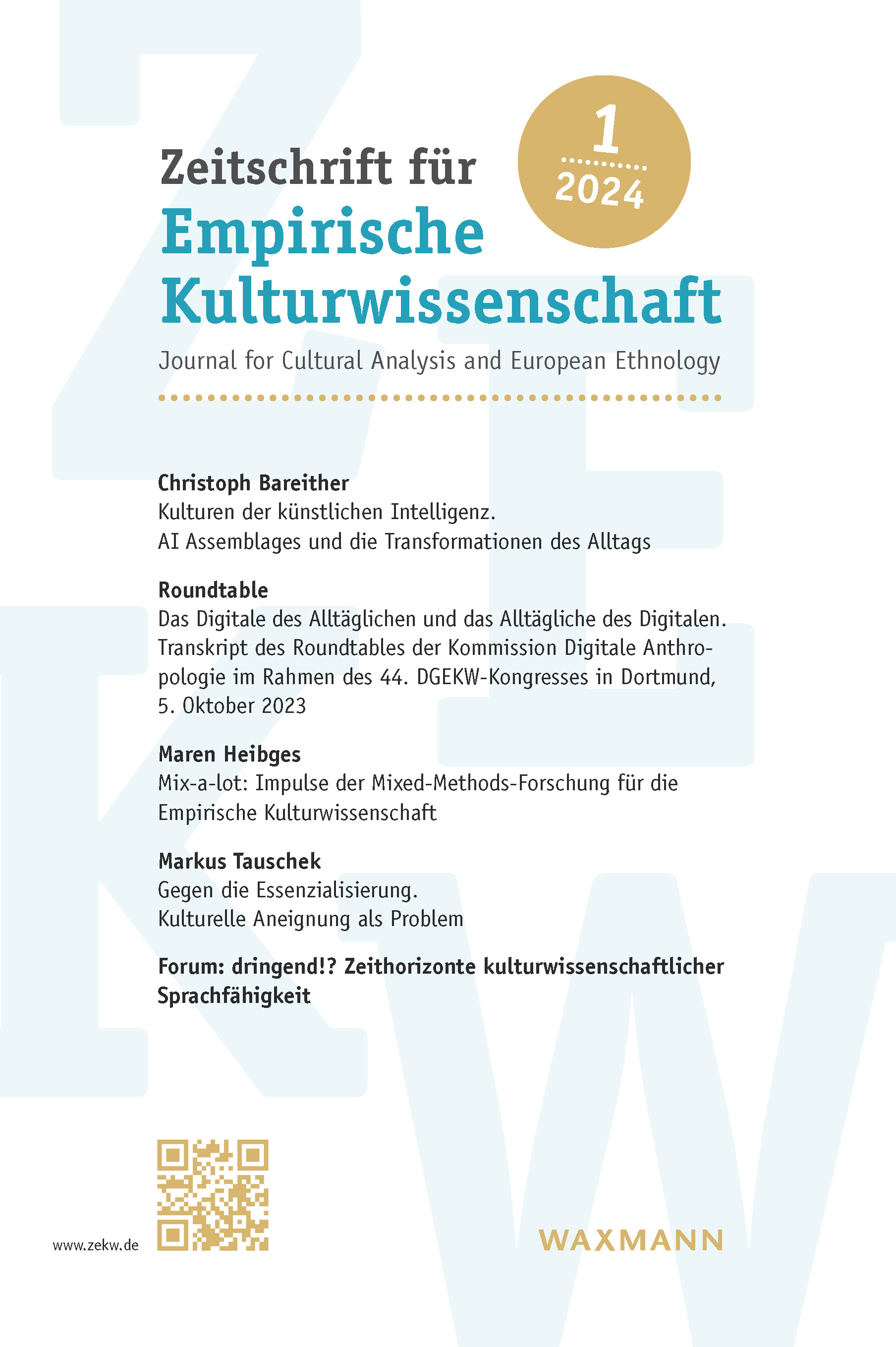Abstract
In recent years, certain cultural forms of expression as well as certain practices, artefacts or phenomena have been problematized and scandalized as cultural appropriation. This contribution argues that the accusation of cultural appropriation is based on essentializing and therefore problematic concepts of culture. Claiming a phenomenon or a thing to have been subjected to cultural appropriation assumes that such elements belong exclusively to certain groups of actors, while others use them in an illegitimate manner. This article focuses on the question of how new forms of (re)essentialization of culture are mobilized, and how categorical boundaries are drawn in processes of othering between a homogenized “we” and clearly separated and equally homogenized “others”, based on the assumption of a supposed cultural difference. Cultural appropriation is identified as a powerful slogan-concept. The article analyzes the social discourses on cultural appropriation, and the academic discourse that sometimes confirms or legitimizes the accusation of cultural appropriation. Culture, today, is shown to be instrumentalized as a category of difference and how sovereignty of interpretation is articulated in relation to the mechanisms of cultural (re)production and transmission.

Dieses Werk steht unter der Lizenz Creative Commons Namensnennung 4.0 International.
Copyright (c) 2024 Zeitschrift für Empirische Kulturwissenschaft. Journal for Cultural Analysis and European Ethnology

